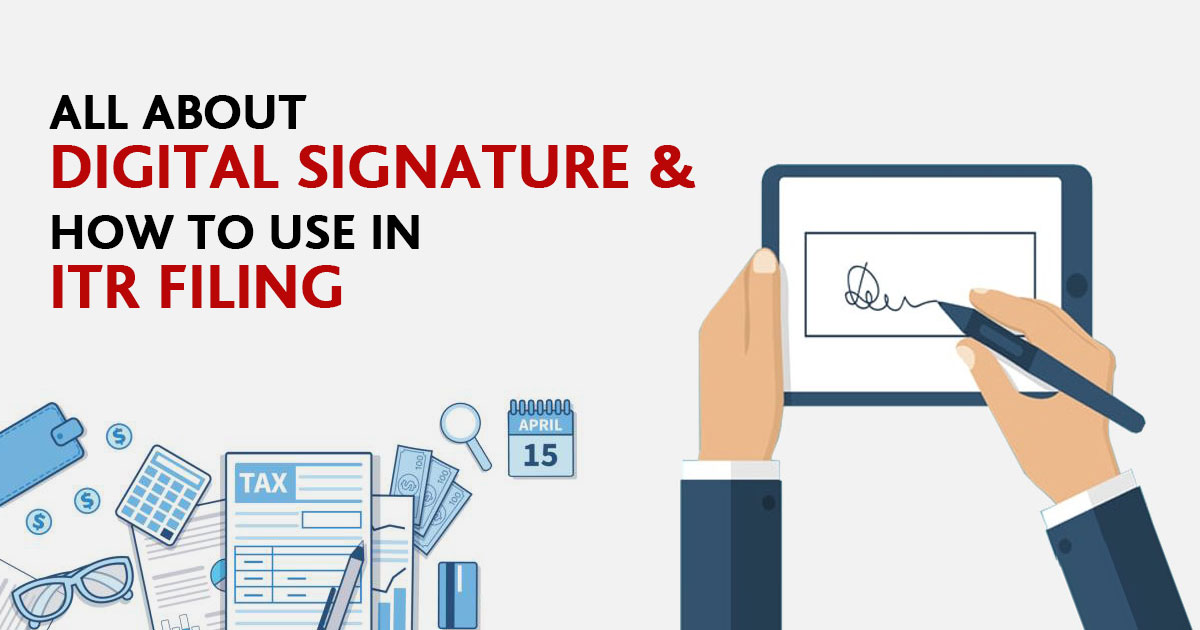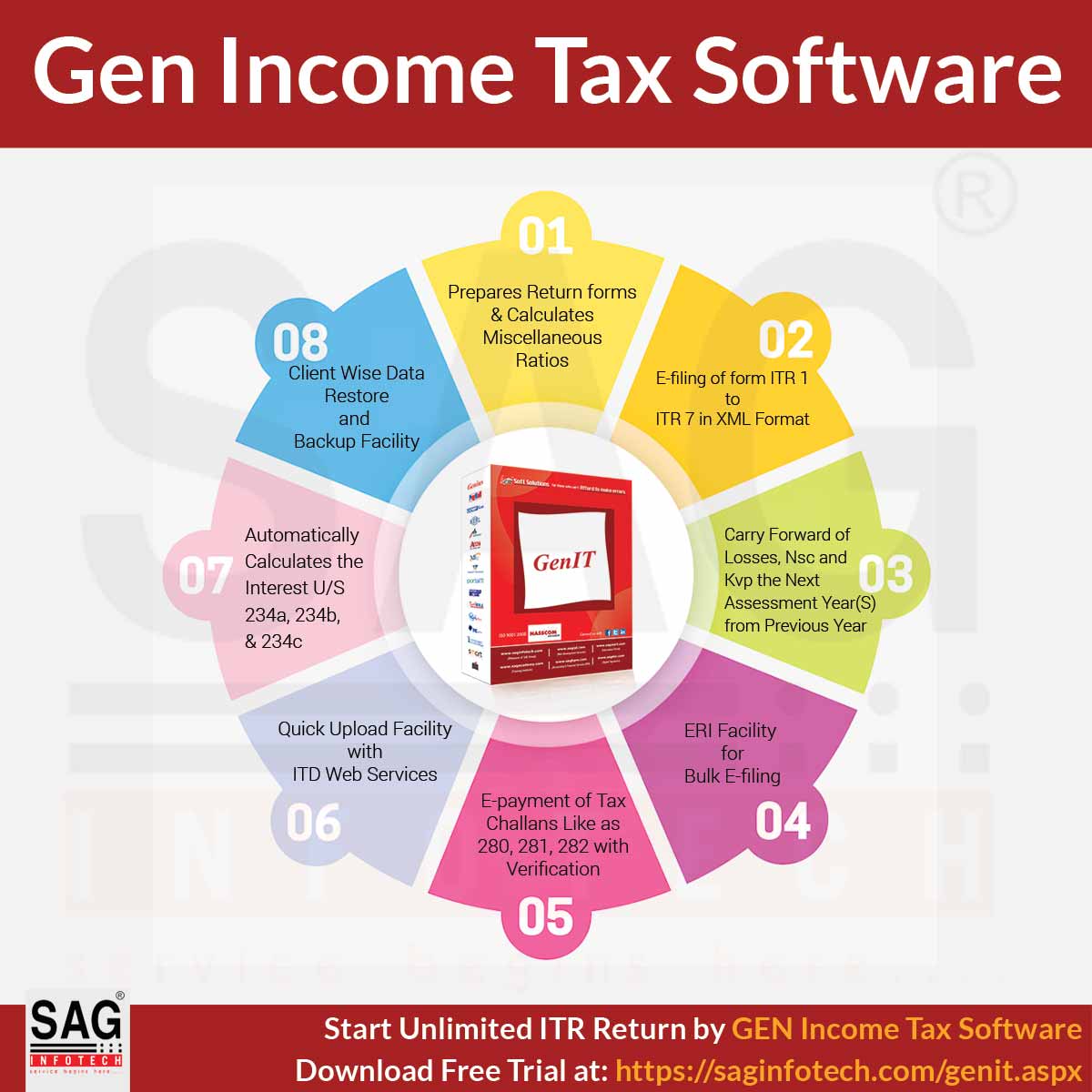
A digital signature is the mark of approval of electronic information same as we need a regular signature to approve manual documents. Income Tax filing is now an electronic procedure; in order to confirm the authenticity of the information filed, one needs to affix a digital signature on the tax return document. The I-T Act 2000 gives a digital signature the importance equivalent to a regular signature.
The attested documents are proof that the taxpayer has filled out the form securely without any traces of fraud.
Digital signatures are issued by Certification Authorities. Credentials required for digital signatures are the taxpayer’s name, public key, name of the Certification Authority issuing the signature, expiration date of the public key, the digital signature and its serial number. It is impossible to tamper with or claim forgery over a digitally signed document. Further modifications are forbidden post-signing.
Advantages of Digital Signature
One can avail of the following benefits of a Digital Signature:
- A Digital Signature is issued by the Certification Authority, and any kind of tampering is impossible with the signature.
- Eliminates the need for paper, thus proving to be an eco-friendly option.
- It is easy to track a digitally signed document.
- Cost-effective and time-saving.
- The E-filing process becomes more efficient, and the information has value.
To understand the concept of a digital signature, let’s take a sneak peek at the components of a Digital Signature:
Name: A signature cannot be recognised without a name. The signature holds the name of the person authorising the document. This reduces the chances of tampering or fraud as the person gives the commitment to the genuineness of the information under their name.
Personal Information: Credentials such as the authorised person’s mobile number, current residential and office address, landline numbers, and email address are equally important as the name on the signature. For user privacy and information security, the credentials are stored in an encrypted (code language) form, which cannot be accessed by everybody.
Public Key: Another integral component of a signature. The sole purpose of the key is to encrypt and secure a document at the time of authorisation. The key helps in the verification process. Every digital signature has an expiry date; a public key associated with the signature determines its expiration. The public key reveals the period of validity of the signature. Public Key allows resetting of the signature if needed.
Serial Number: Last but not least, the serial number is mandatory for identifying a signature. The serial number is useful for the certification authority that issues the signature. The number is to keep the data organised and with a unique identifier attached to it. The serial number is important for the workability of the digital signature.
Grounds Where Digital Signatures are Used
Digital Signatures are of great importance in approving an e-document. Let’s check out the cases where Digital signatures are a must:
- To digitally verify and authenticate emails
- Security in online financial transactions
- A signature is required in the E-filing of income tax returns
- For approving documents in MS Excel, MS Word and PDF with a signature
Steps to Insert a Digital Signature in the Documents While Filing ITR
Step 1: The foremost task for the taxpayer is to register the signature on the ITD portal – https://www.incometax.gov.in/iec/foportal/
Step 2: Secondly, the taxpayer needs to log in to the account using a valid user ID and password.
Step 3: On the dashboard, select ‘My Profile’ and then click on the ‘Register Digital Certificate’ option.
Step 4: On the screen, you will find a file called the ‘Emsigner Utility’. If you already have Emsigner installed, tick the button and click on proceed; otherwise, download the program.
Step 5: Select the main provider, Certificate and Token password and click on the ‘continue’ tab, and the DSC will get registered at the official site.
Authorities to Approach for Digital Signature Certificates
Digital Signatures are issued by the Certification Authorities. They are the licensed regulatory organisations monitored by the government-appointed Controllers.
Certifying Authorities recently performing in India are Safescrypt, CDAC CA, Capricorn CA, IDRBT, GNFC, e-Mudhra CA, NSDL e-Gov CA, Indian Air Force, and Verasys CA.
The Way to Obtain a Digital Signature
One needs to get a digital certificate to legally authorise a digital signature. For obtaining a digital certificate, relevant documents must be furnished to the certifying authority. The authority may ask you to submit a duly signed application form along with a passport-sized photo and identification proof. They may also ask you to register your mobile number, email address and residential or office address.
To be noted: Different countries have different document requirements to generate a digital signature.
Step-wise Guidance to Upload Income Tax Return Using Digital Signature
Step 1: Fill the ITR form with relevant details, convert the file into a JSON format and save it.
Step 2: Visit the Income Tax India portal at www.incometax.gov.in/iec/foportal/. Log in to your account using a valid user ID and password.
Step 3: After logging in, click on the “e-file” button and then go to Income Tax Returns and File Income Tax Returns and then choose the Assessment Year.
Step 4: Select the filing type & ITR Form Name from the drop-down menu.
Step 5: Attach the JSON File.
Step 6: On-screen, there will be an option asking “Do You Want To Digitally Sign The File?” Click on the “Yes” button.
Step 7: Choose your preferred digital signature type; options can be “Sign with PFX file” or “Sign with USB Token”.
Step 8: Upload the income tax returns with the help of a digital signature certificate and authenticate them.










